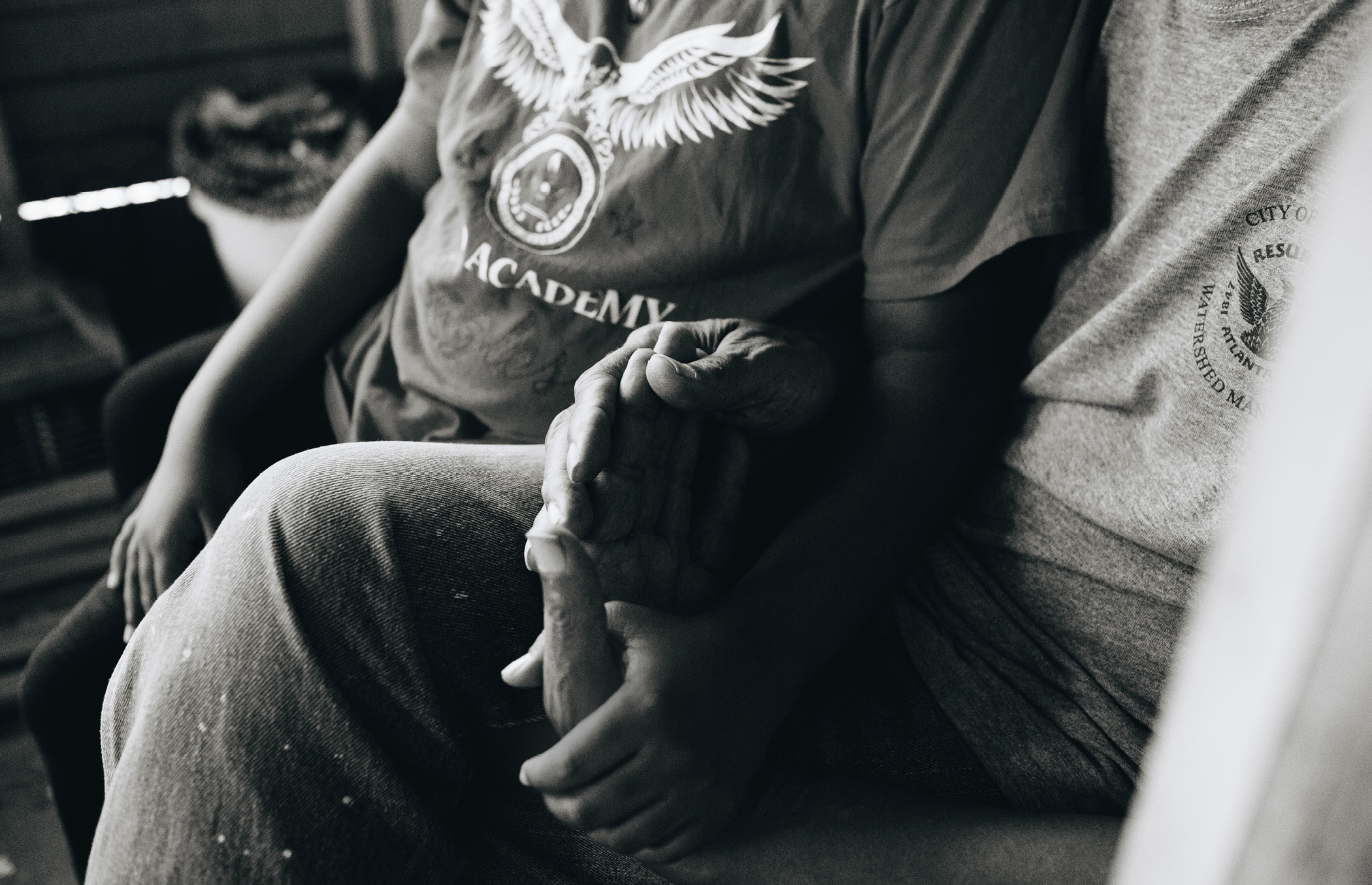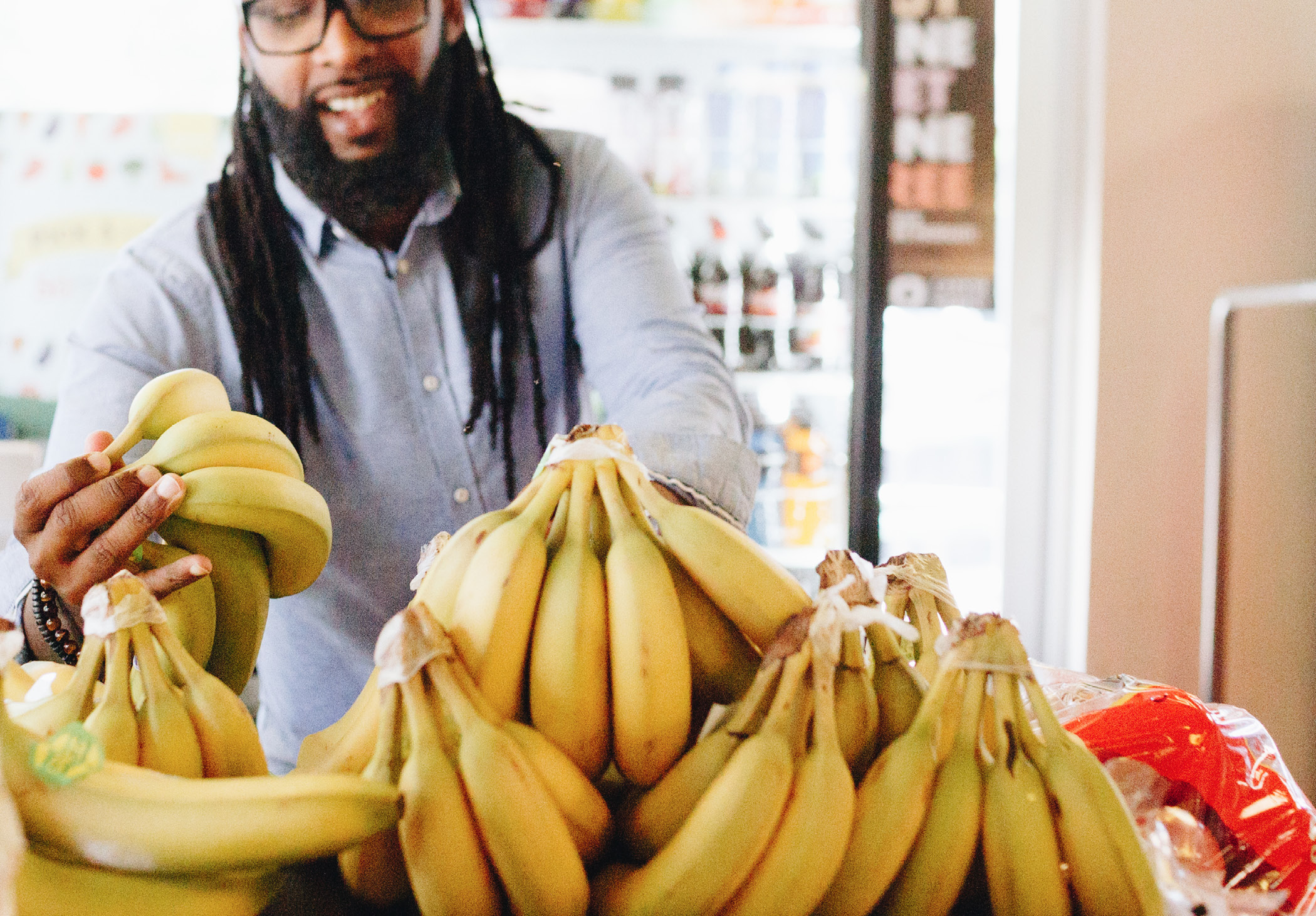A Call to Community

Pressure on Peoplestown is escalating.
Above it to the north in Summerhill, a major development is in the works near the old Turner Field, now owned by Georgia State University. Below it to the south, the BeltLine is coming. Both are expected to be major economic drivers, making Peoplestown even more appealing to higher-income residents who want a plethora of amenities on the outskirts of downtown.
As Georgia State took control of the former Turner Field, the university and a cluster of neighborhood associations, including Peoplestown’s, agreed in April 2017 to a plan that includes educational engagement, enhanced security, child-focused and senior adult-centered programs, arts, culture, access to athletic events, economic development, and a promise to address transportation issues.
“TO BELONG TO A COMMUNITY IS TO ACT AS A CREATOR AND CO-OWNER OF THAT COMMUNITY”
But many residents of the area continue to be wary of the developers’ intentions, and specifics are in short supply. After many years of opportunities that never came to fruition, trust is hard to come by. The university and its development partners own 22 acres and leased an additional 13 around the stadium for retail stores, housing, office space, and other uses. A microbrewery and a coffee shop have already committed to the complex. At the same time, real estate agents are pushing Peoplestown as a desirable “BeltLine” neighborhood. One agency that advertises itself as “Your Atlanta BeltLine Real Estate Expert” describes Peoplestown as “a south Atlanta neighborhood with a variety of homes built for every income level.” Some public and nonprofit efforts are underway to make sure that holds true — that there’s a place in Peoplestown for people of all income levels.
In March, Atlanta Mayor Keisha Lance Bottoms unveiled plans, supported with a $9 million investment, to help low-income residents avoid displacement. Partnering with the city are Invest Atlanta, the city’s economic development authority, the Atlanta Housing Authority, and Choice Atlanta, part of a national initiative of the U.S. Department of Housing and Urban Development.
Former BeltLine CEO Brian McGowan told Atlanta Public Radio in June, shortly before he left the job, that the original BeltLine master plan was not ambitious enough in its goal of 5,600 units of affordable housing along the trail. He said he would like to see 10,000. Some nonprofit organizations, either through service or activism, are working on other ways to hold communities such as Peoplestown together. HouseProud is a nonprofit agency that tries to keep older and disabled residents and military veterans living in Atlanta neighborhoods by repairing their houses. Some 5-5-5ers have had work done on their houses through HouseProud. Many of the homeowners are older widows who live on $1,000 a month or less, said Executive Director Lisa Jones. They haven’t the strength or the skills to make repairs and lack the resources to pay someone to do the jobs. By involving younger volunteers in helping older neighbors, HouseProud builds relationships, she said. Research shows that communities are safer and more vibrant when they’re diverse, she added.
“Seniors are an important thread in the fabric of community,” Jones said. They may know the history and the stories of the area, and they may also be at home when working people aren’t and keep an eye on their neighbors’ homes. “They help keep a community safe,” she said. “They’re better than an alarm system.”
Young and old, new and longtime residents need to feel they have a place and a role to play. “To belong to a community is to act as a creator and co-owner of that community,” wrote Peter Block, author of Community: The Structure of Belonging. “What I consider mine, I will build and nurture. The work, then, is to seek in our communities a wider and deeper sense of emotional ownership and communal ownership. It means fostering among all of a community’s citizens a sense of ownership and accountability.”
VISION, ACTION, PRAYER || Peoplestown residents want a grocery store, a drugstore, a bank, and a diner with affordable meals and coffee to serve as a neighborhood gathering spot. They see ventures in other Atlanta neighborhoods that they would like to see replicated in theirs. Some point to Community Grounds, a light-filled bistro where a customer can pay for cup of coffee and a sausage-and-egg croissant with a $5 bill and get back a handful of change. It’s adjacent to Carver Market, a grocery store with friendly clerks and fresh foods, in an area known as historic South Atlanta, which neighbors Peoplestown.
The coffee shop and market are results of the involvement of Focused Community Strategies (FCS), a nonprofit organization whose mission is “empowering neighborhoods to thrive.” It focuses on four pillars: neighborhood engagement, mixed-income housing, training and counseling, and economic development — operating small businesses such as Carver Market and Community Grounds that “provide jobs, spur on the local economy and serve as a community hub.” FCS founder Bob Lupton, author of Toxic Charity, left a business career to rebuild neighborhoods more than 40 years ago. The cornerstone of his work and that of FCS has been “the belief that all people have value, dignity, and something to offer the community.”
“PEOPLESTOWN RESIDENTS PRAY THAT ANY TRANSFORMATION WILL BE POSITIVE, ENRICHING THEIR LIVES WHILE LEAVING THE SOUL OF THEIR NEIGHBORHOOD INTACT”
The remake of another Atlanta community became a national model. In the mid-1990s, developer Tom Cousins, whose company changed the Atlanta skyline and brought two professional sports teams to the city, undertook the redevelopment of East Lake Meadows public housing project, once known as a crime-infested web of hopeless poverty. Working with the Atlanta Public Housing Authority and with the input of East Lake residents, Cousins oversaw the creation of a mixed-income residential complex with athletic facilities, top-notch schools, recreation, and health care. Over time, the impact — and Cousins’ influence — spread into the nearby area, where a grocery store, pharmacy, bank, and other businesses are located. East Lake led to Purpose Built Communities, with projects across the country in cities from Charlotte, NC, to Oakland, CA. In New Orleans, Columbia Parc replaced a housing project destroyed by Hurricane Katrina. The residents there asked for porches so they could sit outside and chat with their neighbors. Cousins was joined in Purpose Built by investors Warren Buffett and Julian Robertson.
“Mixed income neighborhoods provide the opportunity for people from different backgrounds to become neighbors and friends, sharing pride in their community and an enhanced quality of life,” according to Purpose Built literature. “When fear and desperation are replaced with hope, pride, and possibility, you build more than a new home. You build a new way of life.”
The agreement between Georgia State University, its development partners, and the area around the former Turner Field, including Peoplestown, lists several of the features of East Lake. University president Mark Becker said school officials believe the redevelopment around the stadium will be “transformational for all parties.” Peoplestown residents pray that any transformation will be positive, enriching their lives while leaving the soul of their neighborhood intact.
FROM COMMUNITY TO TOGETHERNESS || A few leaders of Peoplestown, including Daniel DeCriscio, are promoting what they call the “Beloved Community Collective Pledge.” The pledge lays out a vision not just for Peoplestown but for all who seek a life of peace and justice: Dr. Martin Luther King, Jr.’s desire for a Beloved Community.
Signers will be asked to pledge to practice hospitality by getting to know their neighbors and their stories, “including those culturally different”; participate in neighborhood meetings; understand and appreciate the positions of longtime residents; and become familiar with the local school and “support its mission.” Greg Cole of Emmaus House sees some budding of that in Peoplestown. Among the old-timers, he said, “there’s a real sense of people wanting to take care of each other… As the neighborhood gentrifies, there are people here who have kind of made their way into the community.” Lifelong resident Alison Johnson also sees the beginnings of change. “Certain lines are being crossed for people to work together better,” she said. In neighborhood meetings, “conversations are happening.”
Johnson says she is hopeful, “not optimistic; that’s a rush. Hopeful is long term, so I’m hopeful.”
“COMMUNITY BEGINS NOT EXTERNALLY BUT IN THE RECESSES OF THE HUMAN HEART”
Governments, organizations, and businesses can install important infrastructure that stabilizes a neighborhood and makes it livable for all residents, including those of lower income. But it’s the people themselves who can turn a grid of streets into a community.
“Community begins not externally but in the recesses of the human heart,” wrote Parker Palmer, author, educator, and activist. “Long before community can be manifest in outward relationships, it must be present in the individual, as ‘a capacity for connectedness’ — a capacity to resist the forces of disconnection with which our culture and our psyche are riddled, forces with names like narcissism, egotism, jealousy, competition.”
For those willing to take the risk of being vulnerable, of opening themselves up to true friendship with people who are different in age, race, income, and outlook, the reward can be life-sustaining. Community, as Palmer defines it, is not “a goal to be achieved, but a gift to be received.” It is available to all those who have prepared heart, soul, and spirit to accept it.



